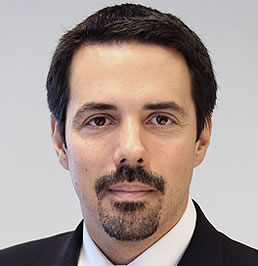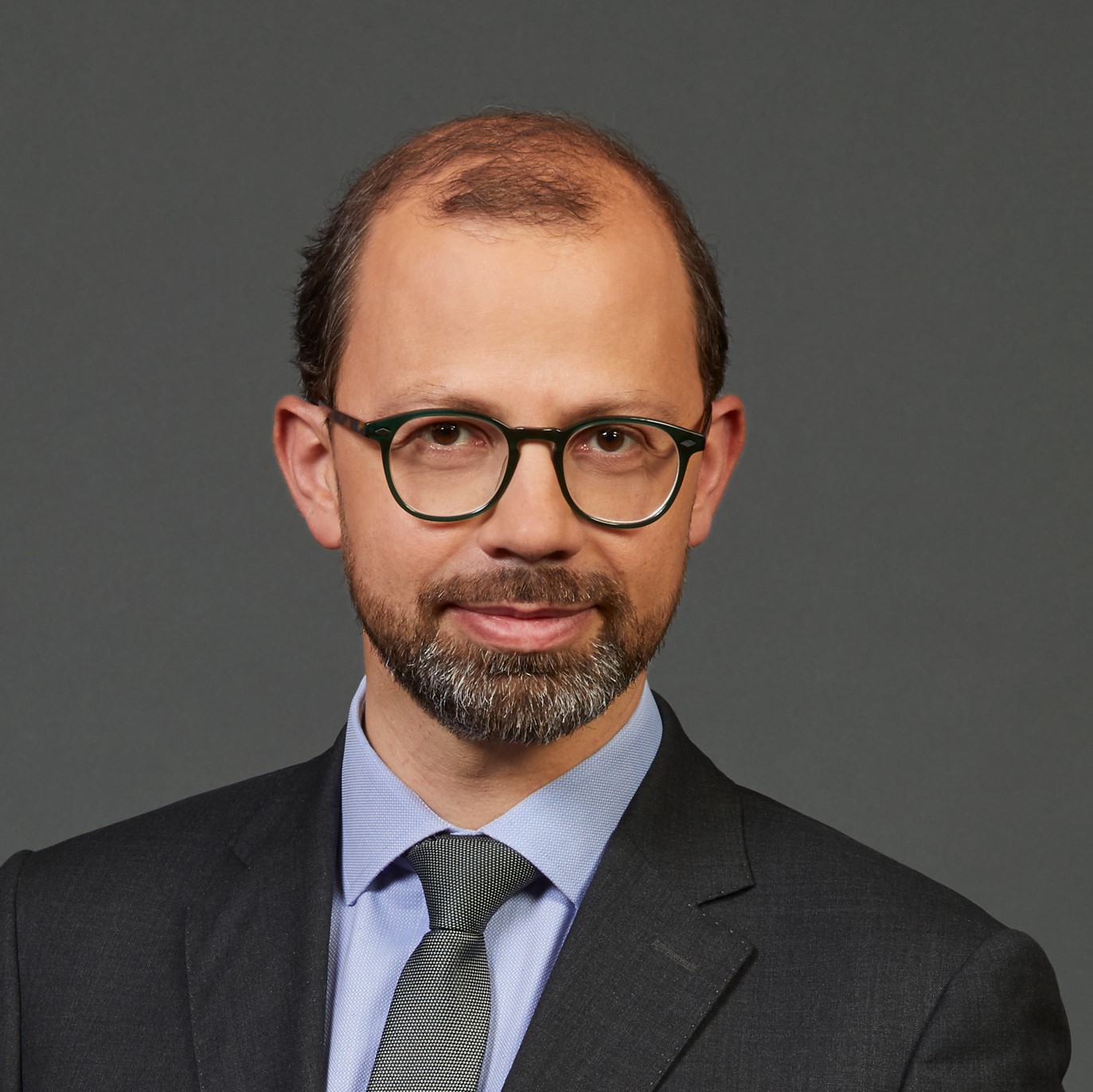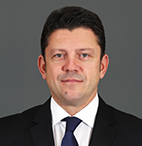
Angola

Luís Filipe Carvalho
Partner
DLA Piper Africa, Angola (ADCA)
[email protected]
T +244 926 612 525
View bio

Australia

Onno Bakker
Partner
DLA Piper Australia
[email protected]
T +61 2 9286 8260
View bio

Alyson Eather
Partner
DLA Piper LLP
[email protected]
T +61 407 248 748
View bio

Belgium

Ilse Van de Mierop
Partner
DLA Piper LLP
[email protected]
T +32 (0) 2 500 1576
View bio

Brazil

Roberto Barros
Partner
Campos Mello Advogados
[email protected]
T +55 11 3077 3513
View bio

Canada

Marc Philibert
Partner
DLA Piper (Canada) LLP
[email protected]
T +1 514 392 8442
View bio

Chile

Mauricio Halpern
Partner
DLA Piper Chile
[email protected]
T +56-2 2798 2611
View bio

Colombia

Camilo Martínez
Partner
DLA Piper Martinez Beltran
[email protected]
T +57 1 317 4720
View bio

Czech Republic

Miroslav Dubovský
Country Managing Partner
DLA Piper Prague LLP
[email protected]
T +420 222 817 500
View bio

Leo Javorek
Counsel
DLA Piper Prague LLP
[email protected]
T +420 222 817 622
View bio

Finland

Hans Sundblad
Partner
DLA Piper Finland Attorneys Ltd
[email protected]
T +358 9 4176 0421
View bio

France

Erwan Lacheteau
Partner
DLA Piper
[email protected]
T +33 6 86 48 82 81
View bio

Germany

Wolfram Distler
Partner
DLA Piper LLP
[email protected]
T +49 69 271 33 022
View bio

Ghana

Kizzita Mensah
Partner
Reindorf Chambers
[email protected]
T +233 302 225 674
View bio

Hungary

Péter Györfi-Tóth
Partner
Horváth & Partners Law Firm
[email protected]
T +36 1 510 1120
View bio

Ireland

Conor Houlihan
Partner
DLA Piper Ireland
[email protected]
T +353 1 4365465
View bio

Italy

Luciano Morello
Partner
DLA Piper LLP
[email protected]
T +39 338 690 73 96
View bio

Ivory Coast

Mame Ngoné Sow
Senior Associate
DLA Piper Africa, Senegal (GENI & KEBE)
[email protected]
T +221 33 821 19 16
View bio

Japan

Kaoru Umino
Partner
DLA Piper Tokyo Partnership Gaikokuho Kyodojigyo Horitsu Jimusho
[email protected]
T +81 3 4550 2813
View bio

Luxembourg

Xavier Guzman
Partner
DLA Piper Luxembourg
[email protected]
T +352 26 29 04 2052
View bio

Mauritius

Shalinee Dreepaul Halkhoree
Partner
Juristconsult Chambers
[email protected]
T +230 465 0020
View bio

Mexico

Edgar Romo
Partner
DLA Piper Gallastegui y Lozano
[email protected]
T +52 55 5261 1858
View bio

Morocco

Fabrice Armand
Partner
DLA Piper Casablanca s.a.r.l.
[email protected]
T +212 520 427 856
View bio

Netherlands

Gerrard Kneppers
Partner
DLA Piper LLP
[email protected]
T +31 (0) 6 20 390 673
View bio

New Zealand

Michael Thompson
Partner
DLA Piper New Zealand
[email protected]
T +64 9 300 3866
View bio

Norway

Egil Hatling
Partner
Advokatfirma DLA Piper Norway DA
[email protected]
T +47 24 13 15 00
View bio

Peru

Ricardo Escobar
Partner
DLA Piper Peru
[email protected]
T +1 511 616 1200
View bio

Poland

Mariusz Hyla
Partner
DLA Piper Giziński Kycia sp.k.
[email protected]
T +48 22 540 78 22
View bio

Portugal

Nuno Neves
Partner
DLA Piper ABBC
[email protected]
T +21 358 36 27
View bio

Puerto Rico

Nikos Buxeda
Managing Partner
DLA Piper (Puerto Rico) LLC
[email protected]
T +1 787 945 9114
View bio

Romania

Ioan Chiper
Counsel
DLA Piper Dinu SCA
[email protected]
T +40372155875

Senegal

Mame Ngoné Sow
Senior Associate
DLA Piper Africa, Senegal (GENI & KEBE)
[email protected]
T +221 33 821 19 16
View bio

Singapore

Vincent Seah
Partner
DLA Piper Singapore Pte. Ltd.
[email protected]
T +65 6512 9595
View bio

Slovak Republic

Péter Györfi-Tóth
Partner
Horváth & Partners Law Firm
[email protected]
T +36 1 510 1120
View bio

South Africa

Jackie Pennington
Partner
DLA Piper South Africa Services (Pty) Ltd
[email protected]
T +27 (0)11 302 0824
View bio

Spain

César Herrero
Partner
DLA Piper Spain S.L.U.
[email protected]
T +34 91 790 1656
View bio

Jesús Zapata
Partner
DLA Piper Spain S.L.U.
[email protected]
T +34 91 788 7373
View bio

Juan Gelabert
Partner
DLA Piper
[email protected]
T +34 91 790 1687
View bio

Natalia López Condado
Counsel
DLA Piper
[email protected]
T +34 672107449
View bio

Sweden

Henrik Sjorslev
Partner
DLA Piper Denmark Law Firm P/S
[email protected]
T +45 33 34 03 04
View bio

Thailand

Waranon Vanichprapa
Partner, Country Managing Partner
[email protected]
T +66 2 686 8555
View bio

UK - England and Wales

Sarah Day
Partner
DLA Piper UK LLP
[email protected]
T +44 (0)113 369 2104
View bio

UK - Scotland

Sarah Day
Partner
DLA Piper UK LLP
[email protected]
T +44 (0)113 369 2104
View bio

United Arab Emirates

James Iremonger
Partner
DLA Piper LLP
[email protected]
T +971 4 438 6253
View bio

United States

John T. Cusack
Partner
DLA Piper LLP (US)
[email protected]
T +1 312 368 4049
View bio
To what extent are energy and infrastructure assets publicly or privately owned?
The main assets of the sector in terms of production, transport and distribution have been acquired through public investment. Although public investment has advantages in terms of less complexity associated with works contracts and lower financial costs associated with concessional loans, in many cases, the participation of the private sector allows greater efficiency in investment decisions, risk mitigation and operation, which also constitutes an additional source of financing for the sector.
For the future, public investment should be reduced and reserved for activities and infrastructures that are in charge of the public sector or that benefit rural electrification, namely:
- large dams that due to their size cannot be made via private financing;
- Very High Voltage Transport – an activity that guarantees national energy security;
- investments in the distribution of areas that are the responsibility of the public utility company for the distribution of electricity; and
- investments in rural electrification, including transport and distribution infrastructures for isolated systems, which will later be managed by the private sector responsible for construction.
The participation of the private sector should cover an investment of USD8.9 billion, essentially at the level of Urban Production and Distribution.
Are there special rules for investing in energy and infrastructure?
There are general rules provided for in the Private Investment Law, approved by Law 10/18 of June 26, which are applicable to investment in the energy and infrastructure sector. Rules such as access to tax, exchange, customs and other benefits. Or also the forms of investment.
In addition to these rules, there are special rules for these sectors, of which we highlight the following:
The electricity sector has its main legislative and regulatory source in the Law no. 14-A / 96, of May 31 (General Electricity Law), which establishes the general guidelines the legal regime for the exercise of production, transportation, distribution and use of electrical energy, and has many other relevant diplomas, aimed to regulate its supply; distribution; production and transport chain, as also its commercial relations, including the quality of services, tariff regulation and access to networks and interconnections.
The exercise of electricity production, distribution and transport activities requires authorization from the state or a public legal person, by means of a concession or license.
The construction and operation of the electrical installations associated with the activities of production, distribution and transport of electricity also requires licensing, under the terms of the Installation Licensing Regulation. The competence for licensing these facilities is, as a general rule, the Ministry that supervises energy (Ministry of Energy and Water).
The regulation of the Angolan electrical system determines that the commercialization of electrical energy can be made within the scope of the Public Electrical System (SEP) (e.g. linked) or outside it (i.e. not linked).
What is the applicable procurement process?
According to the law, the approval of concessions as well as their attribution are the responsibility of the President of the Republic. The award of concessions is preceded by a public tender or restricted tender by prior qualification, carried out in accordance with the Public Procurement Law.
In the case of award to a public company or to a company under the effective control of the state, the above tender process is dispensed.
The attribution of licenses is the responsibility of the government, and this responsibility may be delegated to the local administration bodies of the state in its area of jurisdiction, the object of the licenses is concerned with the distribution and sale of electricity under a public service regime.
What are the most common forms of funding / investing in energy and infrastructure?
Public companies or companies with public domain of the state, if the investor is a public entity.
Or, for a private investor, the most common types of business structures considered by foreign companies to operate in Angola are:
- branches, which, although allowing the undertaking of commercial activities in Angola, are not independent legal entities, and thus the foreign parent entity undertakes unlimited liability for the obligations of the branch, and arising out from the performance of its activity in Angola; or
- representative offices, which are merely aimed at developing and following the business of the foreign entity in Angola but are expressly forbidden to conduct any commercial activity in the country; or
- companies (subsidiaries), which in Angola include (i) Private limited liability companies (Sociedades por Quotas), and (ii) Joint Stock limited liability companies (Sociedades Anónimas).